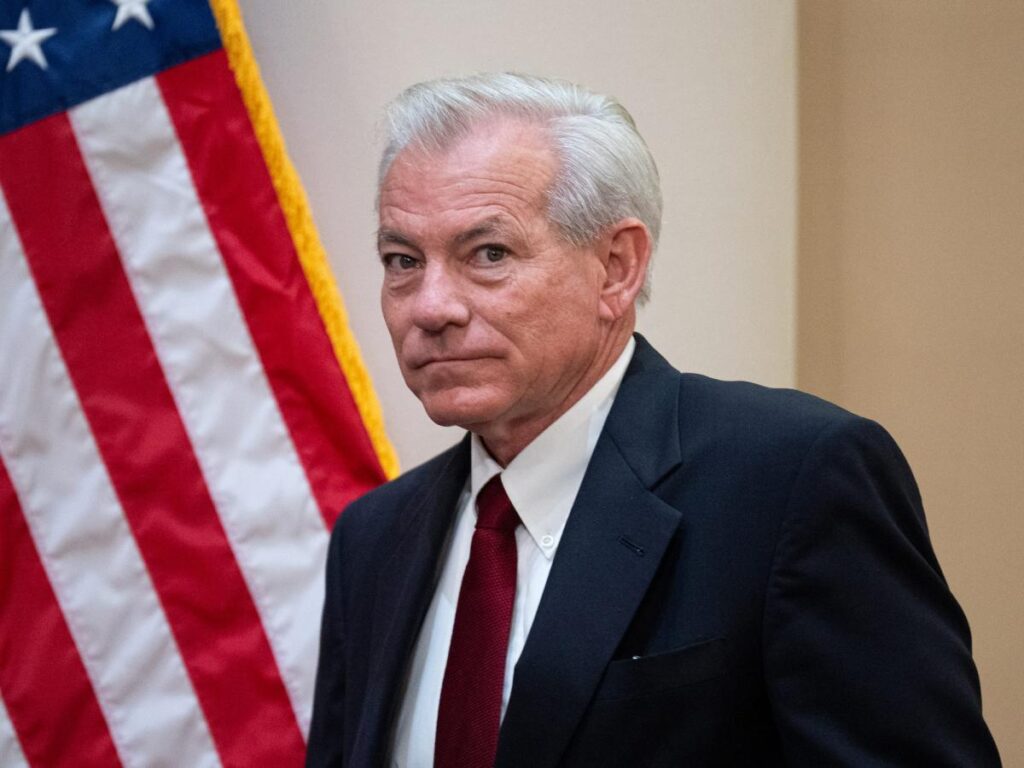Rep. David Schweikert, a Republican representing an increasingly Democratic-leaning district in Arizona, is bracing for the upcoming election with confidence. Meeting at a popular local Indian restaurant, Schweikert’s demeanor suggests he’s unfazed by the political challenges he faces, especially after narrowly defeating Democratic opponent Jevin Hodge in 2022. As affluent suburbs trend toward blue, particularly in Phoenix, Schweikert believes he can still appeal to well-to-do constituents who prioritize economic interests over party affiliations. Having represented Scottsdale and surrounding areas for almost 14 years, he insists his strong ties to the community and his background as a local resident enable him to resonate with voters, despite the shifting political landscape.
Navigating the political currents of his party, Schweikert has distanced himself from the far-right House Freedom Caucus, which he co-founded. Acknowledging the transformation of the group away from its original free-market principles, he defines himself as a conservative, not a populist. He notes that Trump’s popularity persists even among educated voters in his district, revealing the complexities of aligning his political identity with the broader GOP. Despite being the only House Republican in Arizona without Trump’s endorsement this election cycle, Schweikert believes that maintaining his independence from the former president may ultimately work to his advantage, as it could attract moderate voters seeking stability amid turbulent political tides.
One of Schweikert’s primary concerns is the national debt, an issue he continually emphasizes in his speeches and public communications. He criticizes both parties for their unwillingness to adequately address fiscal matters, claiming that rising national debt could lead to severe consequences, particularly for entitlement programs like Social Security and Medicare. His recognition of the delicate nature of these programs has made him a target for Democratic opponents, yet he remains committed to advocating for solutions such as driving down healthcare costs through innovation. He argues that ignoring these pressing financial issues could lead to dire outcomes for millions of Americans and believes his straightforward discourse resonates with constituents who crave serious dialogue regarding fiscal responsibility.
Schweikert’s approach to the highly charged topic of abortion reveals complex calculations informed by both personal beliefs and political realities. As a pro-life advocate influenced by his own experiences of adoption, he has previously supported strict abortion legislation. However, following the Supreme Court’s decision to overturn Roe v. Wade, he has shifted his focus to state-level regulation, acknowledging the political landscape has transformed. While he intends to oppose Proposition 139 in Arizona, which would secure abortion rights statewide, he asserts that his core message remains centered on economic interests, suggesting voters could separate their views on reproductive rights from their choice for Congress.
Meanwhile, his opponent, former state Rep. Amish Shah, is gaining traction among voters with an engaging and inclusive campaign strategy. Shah, who has garnered substantial financial support compared to Schweikert, fosters a message of accessibility and connection with his constituents by emphasizing direct voter engagement. His extensive door-knocking efforts are aimed at bridging the gap with voters in a traditionally conservative district, which he hopes will translate into electoral success. By positioning himself as a practical, approachable candidate capable of bipartisan cooperation, Shah aims to sway voters who may feel disconnected from Schweikert’s party affiliation or rhetoric.
The 2024 election cycle in Arizona is particularly telling of broader national dynamics, and the outcome may reflect shifting sentiments among suburban voters across America. With prominent national figures like Vice President Kamala Harris actively courting Republican dissidents and moderate voters, the political landscape is fluid. As both candidates mobilize their bases and address hot-button issues like abortion, the extent of ballot measures on these topics could play a pivotal role in voter turnout. Schweikert’s confidence stems from his belief that voters will prioritize economic issues over divisive cultural debates, potentially allowing him to maintain his seat in a district that continues to evolve politically. As the campaign progresses, the question remains whether his faith in this strategy aligns with the changing voter demographics and priorities in Arizona.

